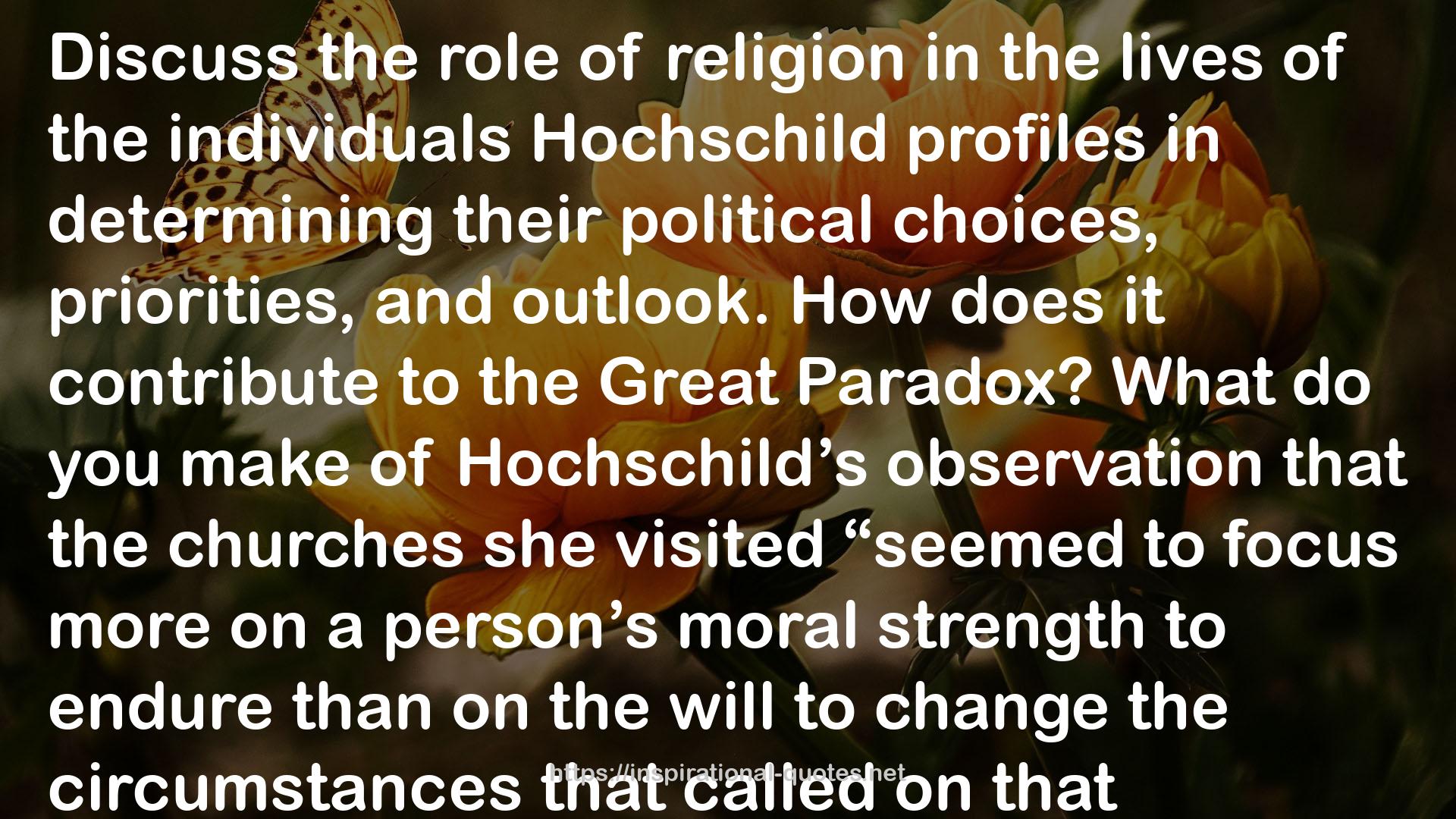" Discuss the role of religion in the lives of the individuals Hochschild profiles in determining their political choices, priorities, and outlook. How does it contribute to the Great Paradox? What do you make of Hochschild’s observation that the churches she visited “seemed to focus more on a person’s moral strength to endure than on the will to change the circumstances that called on that strength”? (pp. 124, 179) 11.Hochschild says that Fox News exerts a powerful influence over her Tea Party friends—what is it about Fox that appeals to them and what do they find troubling about liberal commentators? Is all media biased? What media do you read, watch, or listen to, and do you think it is impartial? (p. 126) 12.In the chapter “The Deep Story,” Hochschild presents the perspective of people she meets to understand and explain their point of view, focusing on feelings and emotions. Does this ring true to you? Hochschild says we all have a “deep story”—do you agree? What is yours? (p. 135) 13.In this same chapter, Hochschild suggests that blue-collar Americans have felt marginalized in a number of ways, including by the election of President Obama. How do you think these feelings culminated in the election of Trump? What role did racism possibly play in the election? Later, Hochschild attends a Trump rally—why does she call him an “emotions candidate”? (p. 140, 225) 14.How does Hochschild’s idea of racism differ from Mike Schaff’s? Which resonates more with you? (pp. 147) 15.Throughout the book, Hochschild discusses the Great Paradox mainly in terms of the environment. But she also notes that by embracing the free market—which favors big business—Tea Party members are often working against their own interests, since many of these members own or work for small businesses. Why does their deep story make it hard for them to see this? Must we choose between the free market and a healthy environment? (p. 150) "
― Arlie Russell Hochschild , Strangers in Their Own Land: Anger and Mourning on the American Right
